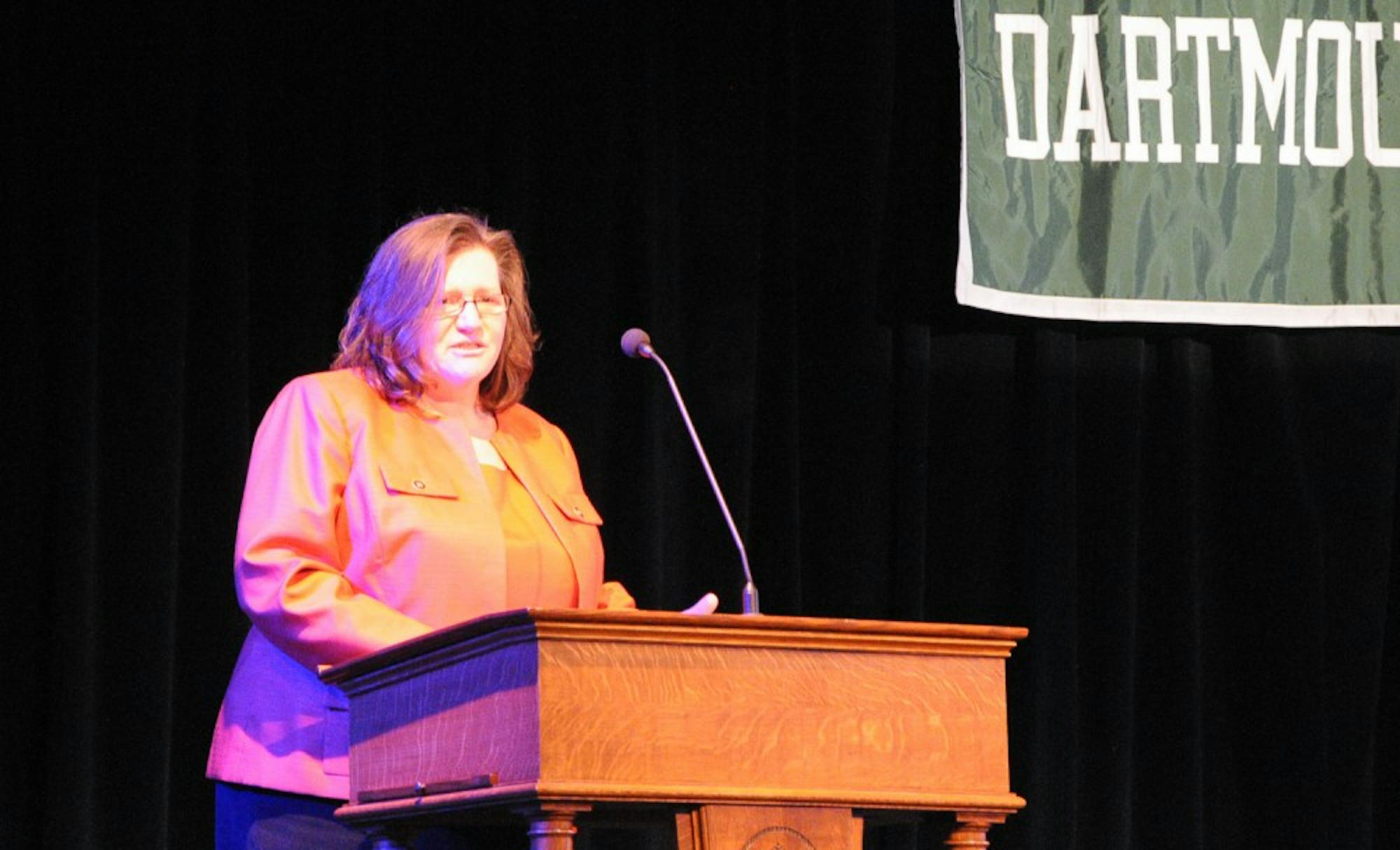Last Friday, the College’s annual Social Justice Awards Ceremony honored members of the Dartmouth community for their dedication to “vigorous and positive action,” the theme of this year’s Martin Luther King Jr. Celebration. Five different awards were conferred to recipients following a competitive nomination process.
Gabrielle Lucke, MLK Celebration committee chair, said the awards acknowledge the work of Dartmouth community members in social justice, peace, civil rights, education, health and the environment.
“What does vigorous and positive action mean?” Lucke said. “We wanted to find a way to honor the people who go above and beyond.”
Christine Crabb ’90 received the Holly Fell Sateia Award — established in 2011 by former College President Jim Yong Kim and former provost Carol Folt to honor faculty or staff members who promote diversity, inclusivity and civil rights at Dartmouth — for her work organizing the MLK celebration and awards ceremony in past years.
Senator Kirsten Gillibrand ’88, D-N.Y., was honored in absentia for her work in both the House of Representatives and the Senate. Gillibrand, who played a large part in repealing the military’s “don’t ask, don’t tell” policy and was the first New York representative to support same-sex marriage, was granted the Ongoing Commitment Award.
Lia Carnie Monahon ’98, a Massachusetts trial attorney for the Committee for Public Counsel Services, received the Emerging Leadership Award for her work combating systematic problems in the legal world.
Monahon said that she took her first steps as an advocate for social justice at Dartmouth.
“I had the opportunity to find fellowship funding and test what I was learning at Dartmouth in the rest of the world,” she said.
The Granger Award, which is given to an alumnus who shows leadership in benefitting underserved populations, went to Martin Cetron ’81. Cetron currently directs the global migration and quarantine division at the U.S. Center for Disease Control and Prevention, and was honored for his work as a physician and public health professional in reducing health disparities among minority communities.
Andrew Wells III, the president of an industrial supply company, was granted the lifetime achievement award for his work at the Wells Academy, an apprentice-training program targeted at disenfranchised Native Americans.
Vice president of institutional diversity and equity Evelynn Ellis said that the Social Justice Awards provide a venue to honor Dartmouth community members who have contributed their time toward bettering the world. She acknowledged the recipients’ efforts to provide a voice to those who have no say.
Interim vice provost Lindsay Whaley said the honorees embodied the charge of social responsibility by combating tough contemporary issues, including prisoner advocacy, Native American empowerment and the use of public service to promote equality.
“Dartmouth’s responsibility as an institution of higher learning is not just to impart knowledge,” Whaley said. “We also have the responsibility to instill in [students] a deep concern for human wellbeing.”
In choosing award recipients, the MLK Celebration committee compares the current nominees to the criteria and accomplishments of previous winners, Luck said, adding that she hopes to maintain the caliber of honorees.
“We don’t necessarily give every award annually if we don’t have quality nominations,” Lucke said. “I would love to see students nominating faculty members who are really making a difference, or the dean who has the rep among students of helping them to really be present.”
As the final event in the College’s annual MLK celebration, the awards serve to conclude the speeches, films and other programming, Lucke said.
The awards ceremony included a panel discussion with award recipients, a performance by the Rockapellas and remarks by Whaley and Ellis. College President Phil Hanlon and Gail Gentes also attended.
Dartmouth’s Social Justice Awards are sponsored by the Martin Luther King Jr. Celebration, the Office of Institutional Diversity and Equity, the William Jewett Tucker Foundation and the Geisel School of Medicine.




